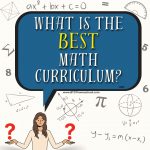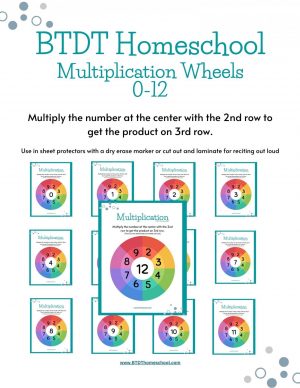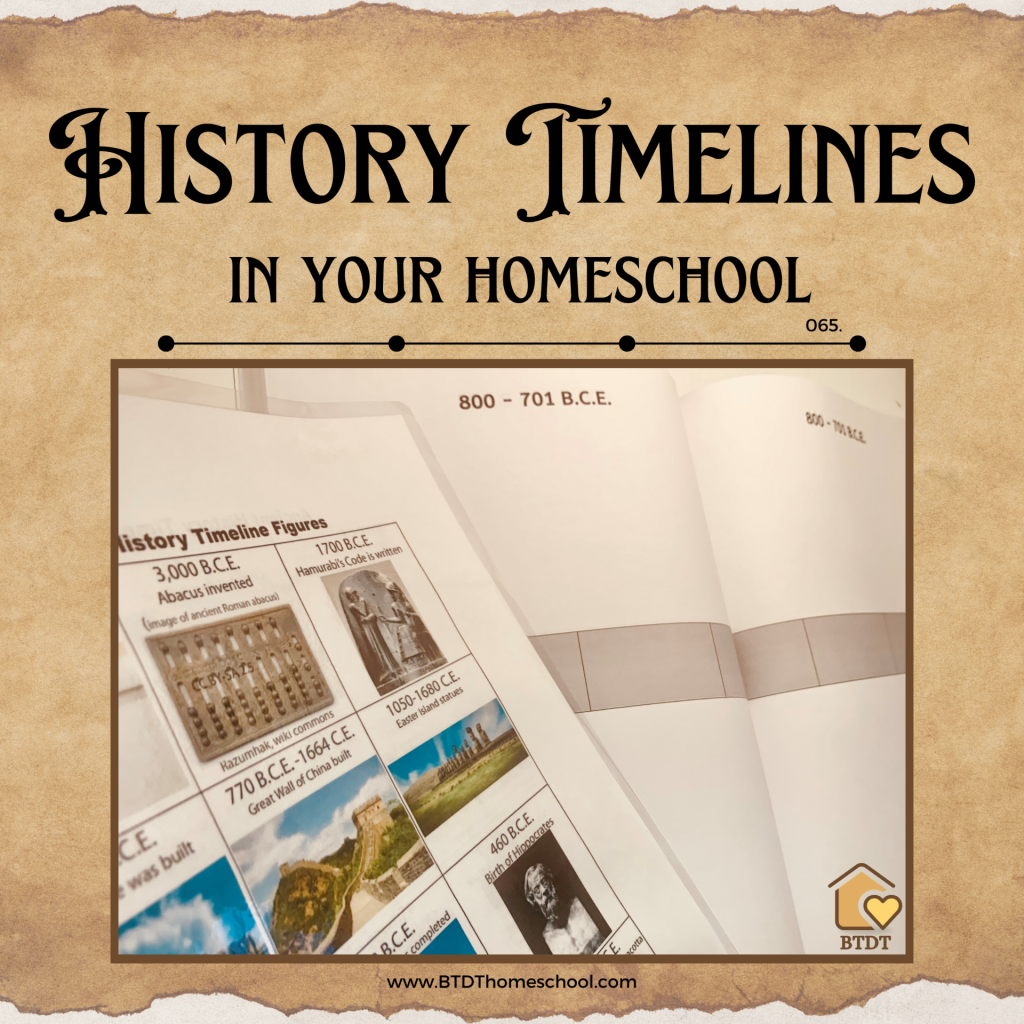063. What is the Best math Curriculum?

Math can be a subject that invokes fear into the hearts of those new to or considering homeschooling. Math may be a subject that you weren’t so great at or maybe you were math minded but are nervous at the prospect of teaching upper level math. Perhaps you feel like you don’t remember enough math from your youth? Remember that you do not need to be an expert in anything to teach your own children. There are a million programs, classes and scripted curricula out there to help you cover this subject with your student and you know your child best. So what is the best math curriculum? In today’s episode, we’ll be exploring the process of selecting the right choice for your homeschool.
Episode 063:
TWO WAYS TO LISTEN TO THIS EPISODE:
1. Click PLAY Button Above ^^ to listen here.
2. OR Listen on your favorite podcast platform:

Apple – Spotify – Google Play – Amazon – Others
Brand New to Homeschooling?
GETTING START PAGE >>
Kindergarten Page >>
High School Series >>
Scroll down for your FREEBIE
Show Notes
In today’s episode, we’ll be exploring the process of selecting the right choice for your homeschool. From navigating various teaching styles and philosophies to finding a program that aligns with your child’s learning needs and your family’s budget. The journey to finding the perfect fit can be exciting but also daunting. Come along with us as we dive into the ins and outs of picking a homeschool math curriculum. We’ll share tips and insights to help you choose the right fit, setting you up for math success!
On today’s episode we are going to be answering one of the questions that we get most often! What is the best math curriculum? And boy, is this question ever a multi-faceted ask! So many things can go into this decision. Do a search on any homeschool group and you’ll find a zillion questions a day with a zillion different responses.
Selecting the best math curriculum can seem overwhelming, but with careful consideration, you can find the right fit for your child’s needs and your homeschooling style. But keep in mind that there is no perfect homeschool curriculum for any subject (and certainly not a perfect homeschool math program), things that are worth doing are not always easy. And just because things may be hard doesn’t mean you’re doing something wrong.
When you start thinking about math for next year or even switching curriculum now, remember that simple consistency is the most valuable thing you can bring to your homeschool math plan. Try not to be a serial curriculum hopper. While ditching things that don’t work for you is great, you do want to make sure that you are giving things a solid go before deciding they don’t work for you. And while reviews are important, take them with a grain of salt- I can’t believe how many people I see sometimes give a review of a program based on just the first short book in the series.
It’s going to be much better and more effective for you to pick something and do it imperfectly, little-by-little, day-by-day than for you to keep bouncing from math program to math program searching for the mythical perfect bullet that will solve all your mathematical woes. Also, remember that every homeschool child is unique. Just because a friend or a random stranger on the internet loves a certain program does not mean it will be a good fit for you and your children.
The best option, when possible, is to look through a homeschool math curriculum in person. Ask friends if you can borrow their books. Go to a local bookstore, or a homeschool convention if possible and flip through the pages and chat with the curriculum authors. And whenever possible, always take advantage of free online math trials!
Textbook and Online Math Curriculum
Here are a few of the common, most popular homeschool math curriculums. The list is certainly not complete. We’ve used some of these math programs personally over the years with various children and at various levels and then some are ones we’ve reviewed or come highly recommended by friends and other homeschool parents. We will have these all linked in our show notes.
Math With Confidencecurriculum
Math-U-See *not secular
Life of Fred *not secular
Beast Academy and Art of Problem Solving
Key factors to consider
As a homeschooling parent, I know first hand that choosing the right math curriculum can be a daunting task. There are so many options available! We both learned over the years that it’s so important to find one that meets your child’s needs, aligns with your homeschool style, and fits within your time and money budget.
Here are a few key factors to consider when selecting a homeschool math curriculum:
your child’s learning style
Every child is different. What works for your friend’s child may not work for yours. I’ve had to pivot multiple times with my own children! The textbook that I started out with and worked great for my oldest made my middle child cry. The issue is not that the math book itself is bad… it just was not a good fit for the way their brain worked. And honestly, it’s one of the best benefits of homeschooling. When something doesn’t work, you can switch it up. You’re not married to the curriculum that a public school is using. Taking full advantage of personalizing your choices is such a great part of homeschooling.
Does your child get distracted by lots of color or too much text on the page? Do they like working deliberately through a worksheet or do they need more hand-holding?
Does your child do best with hands-on material? Is it helpful for them to receive input in multiple ways like visually and auditory? Do you have a child who is asynchronous in their learning?
If you prefer a hands-on approach, a curriculum that includes manipulatives like Math U See and using real-world applications may be a good choice. If you prefer a more traditional approach, you’ll probably want a textbook-based curriculum.
Likewise, some kids need lots of practice problems so a workbook based program may be necessary, where other kids might do better with a program that allows you to move on once you’ve grasped a concept.
Remember that you don’t have to rigidly stick to a curriculum as written, either. If your kids don’t need a million review questions or don’t need to handwrite a million numbers, don’t feel bad about skipping over things that are unnecessary.
time constraints
Do you have multiple children whose needs you’re balancing? Perhaps you need to outsource some of your math lessons with an online program like Mr. D Math or enroll them in an Outschool course. Or maybe you just need an additional explanation- a supplement like Khan academy is great for viewing another explanation on how to do a problem or a Singapore mental math workbook can be a great way to take a break while learning some new techniques and then returning to a concept that was tricky.
Do you love math? Perhaps you want to be more involved with the daily teaching of your math curriculum. My youngest and I look forward to doing math together every day even in high school. There’s a lot of other things she does independently but likes to do math with me.
What kind of approach
Some people like to stay in line with the public school system especially when it comes to something like math that builds on its concepts. You can certainly check the scope-and-sequence of any math curriculum and compare it to your state requirements and personal homeschool goals. If you have an older teenager, and they are college bound, you’re going to want to check out our high school series. One of the most important things we talk about is looking at the entrance requirements for each college they are interested in applying to. This may be a factor for older students or especially for students who are specifically going into STEM majors.
scope and sequence
The scope and sequence for most curriculum is going to be quite similar to state standards. It may be more helpful to notice how the math program is structured. For example, a mastery approach to math focuses more deeply on one topic at a time while a spiral approach teaches smaller portions of the material at a time and rotates through them more frequently.
A traditional “just the facts” approach tells the student what to do, gives them the math rules, and then drills them with lots of practice. A math curriculum that focuses on the why will lead the children to discover mathematical concepts for themselves and will help them understand why the tricks and rules work. Our favorite curriculums strike a balance and include elements of all of the above.
What’s your budget?
We’ve talked many times on our show about budget constraints. I’m a single mom and so the price of the curriculum is a big factor for me. But, as we have also talked about many times before, homeschooling does not need to be expensive. There are options in every price range and plenty of free or low cost resources out there. I’ve almost always bought my curriculum pre-owned from a friend or on eBay, Facebook marketplace.
Just be aware that some of the free curricula out there may have a hidden agenda. I see glowing reviews online and in chats for some of the free Bible based curriculum but remember that they are pushing their worldview. And as the curriculum gets more involved as your child gets older, so does the amount of indoctrination especially when it comes to history and social studies. It is our responsibility to have full awareness of what our children are being taught. So please don’t go in blind, and choose a curriculum solely based on the fact that it’s free.
And keep in mind that just because a curriculum is low cost does not mean its low quality. Not at all. I do expect to pay something for curricula. Someone else has put their heart and soul into creating something of value for you and that deserves compensation, but again, there are so many options. And you can always piece together things yourself. Many people do that especially in the younger years- you really don’t need a formal curricula for k-3.
Depending on your family’s time and your children’s independence, you may choose to be more hands-off in your homeschool math approach and that’s ok, too! Some people find it works to do math one on one with their youngest while their older children are doing something more independently. For example, we’ve used video instruction from Math-U-See for elementary grades and gradually moved to online self-paced classes from Mr. D Math for high school math and eventually dual enrollment at the local community college.
The realities of your schedule, the demands of multiple children in your homeschool, and the unique needs of your individual students can help you determine if working one-on-one with mom and a textbook or outsourcing utilizing online courses or local resources is the best fit for your family.
And if you’re struggling with indecision, remember the most important thing is that you just pick something, start it, and do a little bit of math every day. If you are in an all out rut, take a break, play math games. We have a great resource page for that that came out of our “How do you successfully teach math episode 25.”
At the end of the day, an imperfect math curriculum that you do faithfully is going to be better than the mythical perfect curriculum you never start. Nothing is ever going to be perfect for every homeschool family or student.
We hope you’ve found some insight on choosing a math curriculum today and are feeling empowered to make the right choice for your family. The truth is, there’s no one-size-fits-all solution, but with careful consideration of your child’s learning style, your teaching approach, your budget and the available resources, you can find a curriculum that fosters a love for math and supports their academic growth. Trust your instincts, stay flexible, and most importantly, enjoy the journey of learning alongside your child.
FREE Multiplication Wheels
13 adorable rainbow multiplication wheels covering numbers 0-12. Use in sheet protectors with a dry erase marker or cut out and laminate and have your child recite one each day for math warm up. Make math fun! We talk about this in Episode 025. How Do You Successfully Teach Math? Are you tired of Math…






